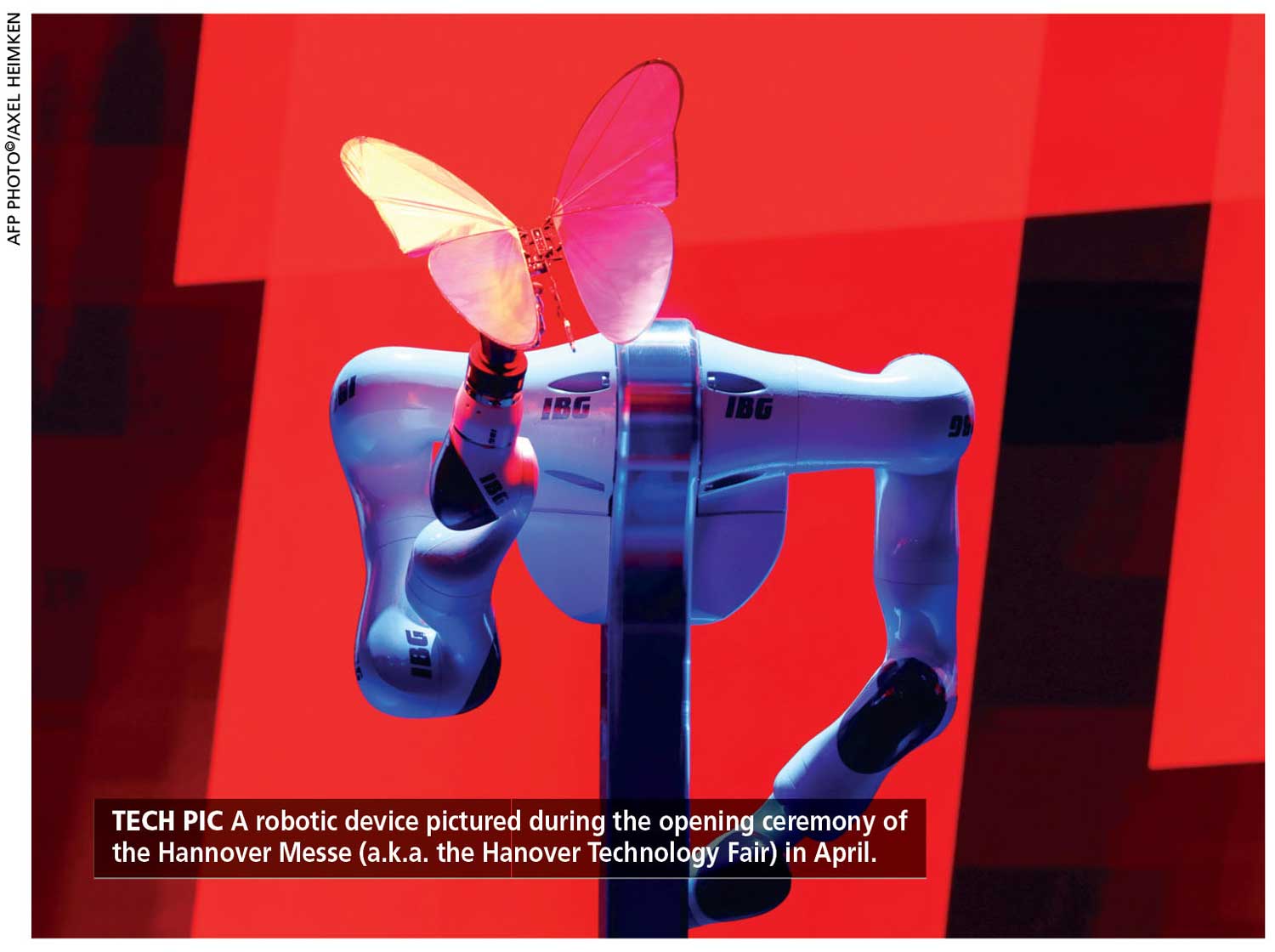AI REVOLUTION
THE FUTURE IS TAKING SHAPE
Fazmina Imamudeen elaborates on how AI is reshaping the future of industry
 Imagine that on the one hand, you have the timeless bard William Shakespeare who is renowned for his brilliant plays that were crafted with meticulous care and passion. And on the other side stands the AI prodigy ChatGPT, which is a master of speed and creativity. It can churn out multiple scripts in the time it took Shakespeare to labour over a single scene.
Imagine that on the one hand, you have the timeless bard William Shakespeare who is renowned for his brilliant plays that were crafted with meticulous care and passion. And on the other side stands the AI prodigy ChatGPT, which is a master of speed and creativity. It can churn out multiple scripts in the time it took Shakespeare to labour over a single scene.
The clash of these titans encapsulates the dynamic world we inhabit – a place where artificial intelligence is a formidable force that’s weaving its own narrative alongside the genius of human creativity.
As AI forges ahead however, it carries with it both promise and peril. And a pertinent question pops up – will bots replace humans?
While this transformation won’t occur overnight, it follows a pattern of displacing certain jobs. The tides of change may bring innovation and progress but they also bear the weight of uncertainty and upheaval for those caught in the crosscurrents. And the result is a ripple effect that can shake the livelihoods of countless workers and potentially impact millions.
Past industrial revolutions saw machines replacing manual labour. But this time, the paradigm has shifted and AI’s progress can tackle not only repetitive tasks but also skills that are typically reserved for humans – such as creativity and cognition.
With ChatGPT leading the way, machines can now intelligently produce content, and generate original pieces with flair and style.
In May, the US experienced a notable impact of AI on the job market with the loss of 3,900 jobs. This figure accounted for approximately five percent of all job losses during the month, making artificial intelligence the seventh highest contributor to job losses.
According to a McKinsey report, AI’s potential value to businesses is projected to soar to an astonishing US$ 13 trillion by 2030.
However, amid these transformative shifts, there emerges a silver lining: AI has the capacity to create a remarkable 97 million new jobs by 2025. This will herald a dynamic and adaptive workforce that’s prepared to tackle the challenges of the future.
In an evolving job market, the key to remaining relevant lies in continuous learning and adaptability. Equipping individuals with the tools to embrace new challenges and acquire cutting-edge skills will enable them to ride the waves of technological advancement with confidence and efficiency.
The foundation for a dynamic and agile workforce can be laid by fostering a culture of lifelong learning. Employees will then be ready to harness the potential of artificial intelligence, and contribute to developing a thriving and innovative economy.
As industries across the globe recognise the presence of AI, they are pushing themselves towards a competitive edge and igniting innovation like never before.
In the healthcare sector, the speed and precision that artificial intelligence brings to diagnostic efforts outshine human capabilities. Patient records and medical images are analysed at warp speed, and early detections and personalised treatment plans are tailored to each individual’s unique biochemistry.
The integration of AI into the motor industry and development of self-driving vehicles is expected to continue advancing rapidly in the near future. This profound transformation towards enhanced safety, energy efficiency and driving experiences will remain at the forefront of innovation.
While challenges persist, ongoing progress and professional efforts in rigorous testing, regulatory compliance and public acceptance will pave the way for an imminent revolution in transportation – and thus reshape how we move and interact with automobiles in the coming years.
The retail sector has also adapted to artificial intelligence and unleashed chatbots that tirelessly serve customers around the clock.
AI’s prowess includes safeguarding stores with facial recognition systems and recommending personalised products based on customers’ shopping histories.
Enter the domain of Amazon, where retail stores proudly feature self-checkout systems that seamlessly detect our selected items, and guide us through an effortlessly smooth and frictionless shopping experience.
While job displacement poses a challenge, we can’t deny the unparalleled advancements that artificial intelligence brings. And as we move forward with AI’s transformative influence, we’ll find ourselves on the threshold of a thrilling future.
This revolution is not only offering a glimpse of tomorrow… it’s shaping it too.




